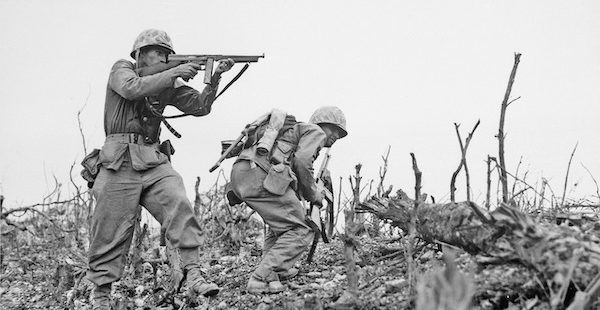
Six Reasons to Read Military History
Military history can be riveting, filled with stories of vast armies and dramatic battles. It can also be depressing, reading page after page of carnage, innocent lives destroyed, and the inevitable suffering of war. Either way, however, I’ve come to believe that it’s important and valuable to read.
(1) Stories of Battle Give Glimpses of Honor
There is much that is dishonorable in war. We might even admit that most of war is simply a catalogue of shame. War provides a platform for the proud, opportunity for the lawless, and justification for the violent. Few people volunteer to enter its darkest annals – and those who find themselves in it are normally motivated by no higher impulse than a desire to escape it.
Shining distinctly, like solitary lanterns in the darkness, deeds of honor punctuate this horrible scene. It can be difficult to identify honor in an orderly world, since it takes the backstage and has many counterfeits. But when all else is stripped away except life and death, honor is apparent. It is seen in the soldier who falls on a grenade, the political prisoner who maintains his humanity, and the civilian who sacrifices himself to aid his country. Some are forced into this honor. Some volunteer for it. And a few, in their darkest hour, find something within themselves that they didn’t know existed.
(2) Accounts of Warfare Steel the Soul
When we finally achieve true appreciation for what others have sacrificed, we are then prepared to demonstrate honor. The stories of the miseries and hardships of others put our own in perspective. When we understand what others have fought for, we recognize its true value – for what is most precious is often stained by blood.
Perhaps we imagine that we could not stand up to the accumulated troubles that others have gone through; life is already hard enough. But those who fought before teach us that it is possible to go through these things, and to find purpose in the chaos, strength in the despair, and dignity in the devastation.
(3) Conflict Reveals the Essence of Humanity
When all else is stripped away, the naked struggle for survival shows the stark reality of who we are. In the crucible of war, it’s easy to learn that we are all, in some ways, very similar: motivated by similar hopes and fears, dreams and longings.
War also strips away the trappings of civilization, revealing the essence of an individual. We learn what people are like when they don’t have to behave a certain way, when their choices result in life and death, and when others rely on them. In these situations, war is a study in character, revealing humanity in a way that it is rarely seen.
(4) War Changes Perspective
As all-consuming as war may be for the individual, warfare is never about a single individual. It is the combined effort of hundreds, thousands, even millions. Recognizing the immense scope of war causes us to think about life from a different perspective.
As important as the individual is, his own hopes and dreams are treated as less important than the cause that motivates warfare. Individual lives are mere statistics in comparison to the outcome of the war. This is deeply humbling and teaches us not to overvalue ourselves.
It is not only our own lives that are placed in perspective. Wars are only climaxes in the greater stories that are told. History is a story, and wars are often the plot-points that shape the flow of the story. We all have our own stories, but war is sometimes part of the broader story that links many of us together.
(5) Great Struggles Engage Our Attention
For all its unsavory features, warfare does create incredible drama. Stories of heroism, impossible odds, and dramatic encounters create powerful stories that deserve to be preserved and passed on. Whether crossing the Alps with Hannibal, battling the Spanish Armada, or fleeing the shores of Elba, the reader of military history will always find new and astonishing stories to keep him engaged.
(6) History is Learned in Hostility
We all need to understand history if we are going to understand where we are from. Hostility is part of that history. The more we read about war, the more we understand the world of the past, and there is value in that. As one man noted, history is a subject so broad that it demands continual reading. Those who would understand it would do well to read the stories of the conflicts of the past.



